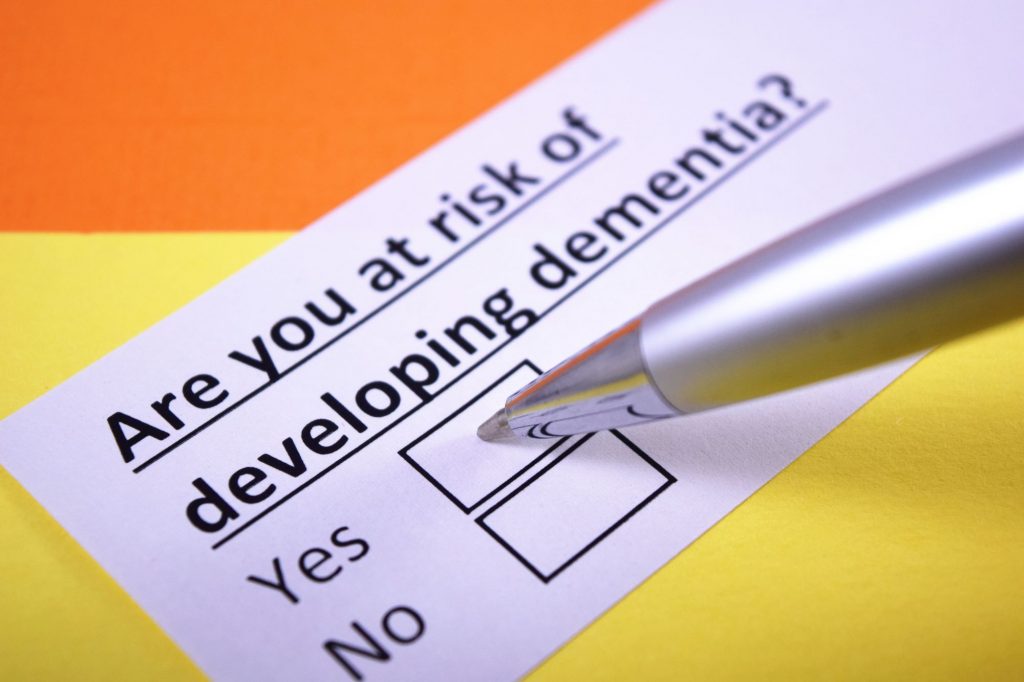What Is Frontotemporal Dementia?

On the surface, former TV host Wendy Williams and Die Hard star Bruce Willis seemingly have nothing in common but a career in Hollywood. Unfortunately, that couldn’t be further from the truth. Both Williams, 59, and Willis, 68, have frontotemporal dementia (FTD), a common form of early-onset dementia. But what exactly is FTD? What are the symptoms and risk factors? If you’re looking for answers, you’re in the right place. Here’s everything you need to know about frontotemporal dementia.
Frontotemporal Dementia: What Is It?

According to Mayo Clinic, frontotemporal dementia (FTD) is a collection of brain disorders primarily impacting the frontal and temporal lobes. FTD affects not only behavior and personality but also language, marked by a gradual regression of speech and comprehension skills. Unlike many other types of dementia, FTD tends to occur at a younger age and can start to present in an individual as early as age 45. As the disease progresses, the sufferer will generally begin to display more and more symptoms.
Types of Frontotemporal Dementia

Frontotemporal dementia can be difficult to diagnose, especially since there are three separate and distinct subtypes. Additionally, symptoms tend to vary from person to person. Depending on the individual, symptoms can also overlap across different disorders and vary depending on the disease stage due to accompanying brain changes. Here are 3 types of frontotemporal dementias and everything you need to know about them.
Behavioral variant frontotemporal dementia
Also known as bvFTD, this subtype is the most common form of FTD. Typically, it involves personality and behavioral changes. Cognitive symptoms such as executive dysfunction and language difficulties may also be present but not as prominent as in other subtypes. Common symptoms include (according to Northwestern Medicine):
- Inappropriate or bizarre social behavior
- Using obscene language or making inappropriate sexual remarks
- Apathy and impulsivity
- Loss of empathy and motivation
- Lack of personal safety
- Impaired decision-making
- Increased irritability
- Heightened emotional reactivity, particularly in individuals who were previously less emotionally responsive
Primary progressive aphasia
Primary progressive aphasia (PPA) is characterized by the gradual and progressive loss of language abilities. Unlike other forms of dementia where memory loss is a prominent feature, individuals with PPA primarily experience difficulties with language, including speaking, understanding, reading, and writing. PPA typically affects individuals in their 50s, 60s, or early 70s, although onset can occur at younger ages. There are three main variants of PPA, which are:
- Semantic PPA: In this variant, individuals struggle with understanding spoken words and may have difficulty naming common objects or recognizing familiar faces. As the condition progresses, comprehension continues to decline, making communication increasingly challenging.
- Agrammatic PPA: This subtype involves significant difficulties in forming coherent speech. Over time, individuals may lose the ability to speak altogether as their language function deteriorates.
- Logopenic PPA: Individuals with this variant experience having trouble finding the right words during conversations. This ongoing struggle with word retrieval makes communication progressively more challenging as the condition advances.
Movement disorders
Corticobasal syndrome and progressive supranuclear palsy are two rare movement disorders often linked with FTD. While corticobasal syndrome leads to gradual loss of movement control, supranuclear palsy results in difficulties with balance.
Symptoms of corticobasal syndrome may include:
- Inability to use the hands or arms to perform a movement despite having normal grip strength
- Muscle rigidity
- Difficulty swallowing
- Slow, slurred speech
- Shaking (tremors)
- Memory and visual issues
- Balance problems
Meanwhile, symptoms of progressive supranuclear palsy often include:
- Increased forgetfulness or irritability
- Blurred vision
- Slurred speech
- Depression
- Difficulty focusing eyes or holding someone’s gaze
- Becoming more prone to emotional outbursts
- Inappropriate anger
What Causes Frontotemporal Dementia?

Currently, the cause of FTD is unknown. However, research has uncovered some information that may help them understand the condition more. According to Alzheimer’s.gov: “People with FTD have abnormal amounts or forms of proteins called tau and TDP-43 inside nerve cells, or neurons, in their brain.” The same article goes on to note that neurons die because the buildup of these proteins causes damage. Additionally, those who have a family member with FTD are more likely to inherit the disease themselves.
How Is Frontotemporal Dementia Diagnosed and Treated?

FTD can be a difficult disease to diagnose. Not only are FTD and related disorders rare, but symptoms may be similar to those of other conditions, making it difficult for physicians to diagnose them. Typically, a healthcare provider conducts a thorough medical history and physical examination, including a review of symptoms and evaluation of cognitive, behavioral, and functional changes. Family members or caregivers may provide valuable information about the individual’s symptoms and changes in behavior and cognition.
A doctor may also perform brain imaging tests. It’s important to note that genetic tests only work in cases where there’s a family history of FTD (according to Alzheimer’s.gov). Unfortunately, at this time, there’s no cure for FTD, nor is there a way to slow down or prevent the progression of the disease. As such, treatment of FTD focuses on managing symptoms, maximizing function, and improving quality of life. Common strategies that may help alleviate symptoms and slow disease progression include:
- Medication: Certain medications, such as antidepressants, antipsychotics, and mood stabilizers, may be prescribed to manage behavioral symptoms like anger or aggression. However, these medications should be used with caution due to potential side effects.
- Supportive Care: Supportive care services, including respite care and support groups, can provide socialization, mental stimulation, and education for individuals with FTD and their families.
- Speech and Language Therapy: Speech and language therapy can help individuals with FTD improve communication skills, maintain language function, and develop compensatory strategies for managing language difficulties.
- Advance Care Planning: Advance care planning involves discussing and documenting preferences for medical care, end-of-life care, and other important decisions. Advance directives, power of attorney documents, and living wills can help ensure that the individual’s wishes are respected and followed as the disease progresses.
What Can You Do If You Think You Have FTD?

If you suspect that you or a loved one may have frontotemporal dementia, it’s important to seek medical evaluation and guidance from a healthcare professional with expertise in dementia diagnosis and management. They may order tests, such as blood tests, a sleep study, brain scans, or neuropsychological testing. Remember—FTD has no cure. Make sure you make provisions and put your wishes into writing sooner rather than later. Talk to your doctor and loved ones for further information and support.
Looking for more dementia resources?

If you or a loved one are experiencing symptoms of FTD or other forms of dementia, then consult a doctor as soon as possible.
For additional dementia resources, visit these links:
Popular Articles About Alzheimer's and Dementia
Originally published March 11, 2024








